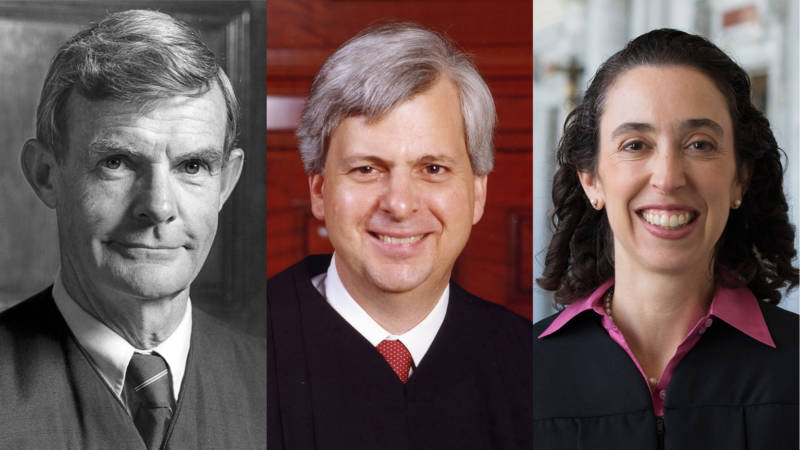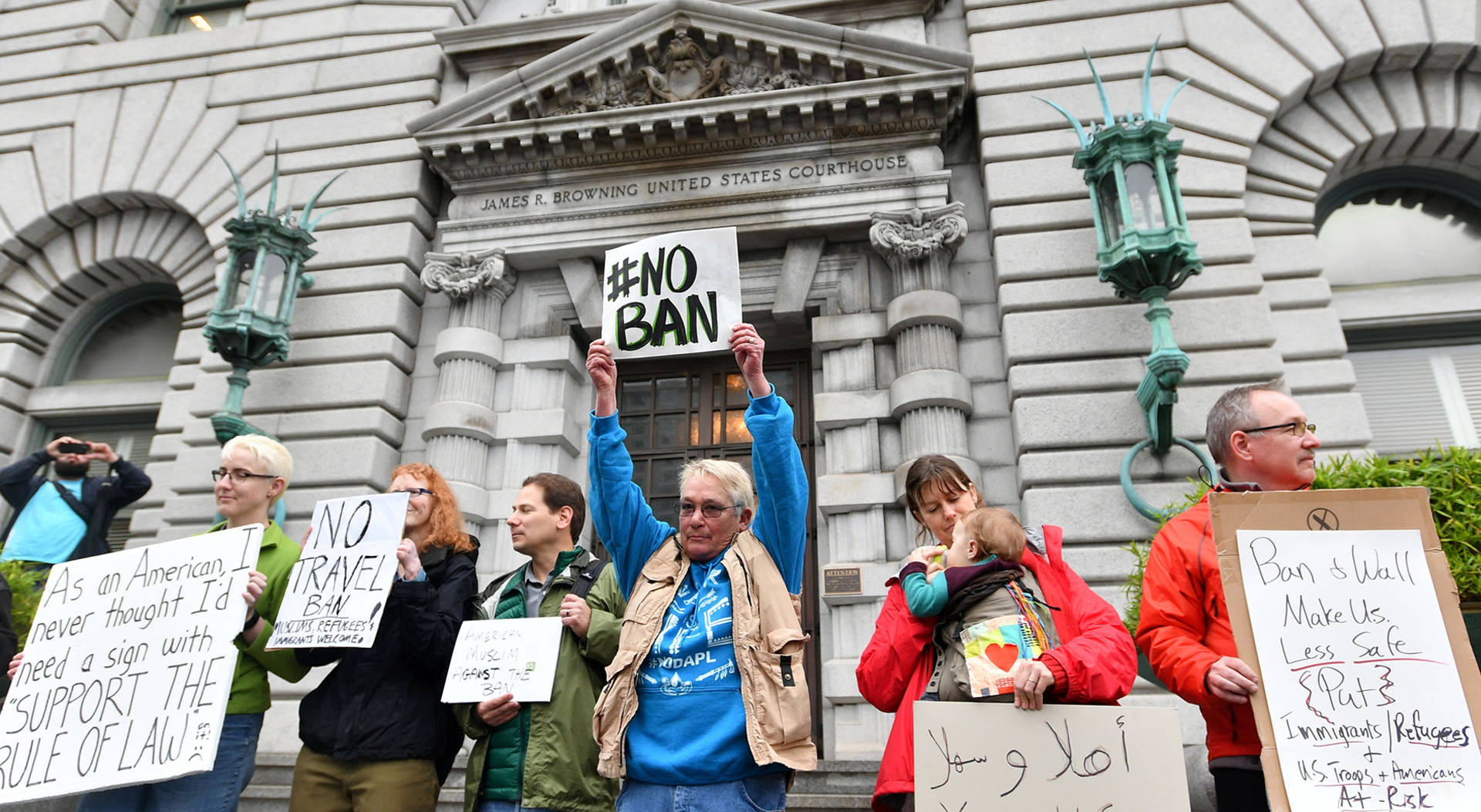A three-judge panel of the 9th U.S. Circuit Court of Appeals unanimously refused on Thursday to reinstate President Donald Trump's travel ban on travelers from seven Muslim-majority nations.
In a 29-page ruling, the panel -- made up of one Republican and two Democratic appointees -- wrote that they're keeping the ban on hold because they do not believe the Trump administration is likely to succeed upon appeal, or that the administration demonstrated that the ban needs to be instated.
The executive order sought to ban people from seven majority-Muslim nations from entering the U.S. for 90 days, and to halt the nation's refugee program for at least 120 days.
The ban was put on hold last Friday by a Seattle-based judge, who issued a temporary restraining order after the states of Washington and Minnesota sued. California and more than a dozen other states joined the suit.

"We hold that the government has not shown a likelihood of success on the merits of its appeal, nor has it shown that failure to enter a stay would cause irreparable injury, and we therefore deny its emergency motion for a stay," the panel wrote in their Thursday order.
